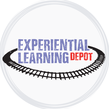|
Experiential learning resources for the innovative educator
My family of four has traveled like crazy the past few years. We've been to seven National Parks, flew to Copenhagen, took a handful of long distance road trips. It has been absolutely exhausting. No question. But I don't regret any of it.
There are so many benefits of educational travel. There are learning experiences that can only be had from removing oneself from from the comforts of everyday living and learning environments. I encourage you to check out my blog post on the benefits of educational travel.
My family travel experiences were all inspired by my experience with high school educational trips. I was heavily involved in my school's travel program. There are few schools that have travel programs. Mine just happened to be one of them. The school's founder and director recognized the connection between travel and learning. Learning comes organically when traveling, especially when traveling with a group that shares the same purpose and goals. Our school travel program is an example of that. Our travelers bond over a profound shared experience. I understand that our school travel program is a rare thing in public education. There are a couple things you can do if you do not have a school travel program at your school. Teachers, students, and parents can be proactive. Below I have listed a few ways students can travel if traveling through a school program isn't an option. I split them up into different roles for the sake of organization, but encourage combining your efforts. 7 Options for High School Educational Travel
Teachers:
1. Start a Travel Program at Your School: Put together a proposal that highlights the value of travel, and present it to the school board. Teachers, students, and parents can do this together. Creating a committee of teachers, parents and students would make the greatest impact. Strength in numbers! Take a peek at my free educational travel resources for guidance.
2. Provide Support and Travel Resources -
If a school travel program just isn't realistic at your school, provide resources and encouragement to students that could really benefit from a travel experience. We had a student who wanted to study abroad in Japan her senior year. She worked with her school advisor to get there, as our school didn't have its own exchange program with Japan. The student did most of the work, including the fundraising, but the support and assistance of her advisor was critical. The student did study in Japan her entire senior year, went off to college, studied abroad in Japan again, and ended up getting a degree in organizational development. This experience significantly changed this student's life and continues to play a role in her life. Her advisor recognized that and did everything she could to make it happen. Students and Parents: It's tough being a parent, as we want to provide as many experiences for our children as we can, but traveling isn't cheap. Many of us don't have the means to make it happen for our children. The reason I was able to bring my own children to Denmark is because it was paid for by my husband's company. If student travel is a priority, I would start by checking for schools in your community that have a travel program. If that doesn't exist or if that isn't an option, there are a variety of other ways to travel cheaply, especially when it is with a volunteer or educational organization. Keep in mind, some of these options may not sound exciting. Just because it's not an adventure trip to Brazil or a food tasting experience in Paris doesn't mean it's not valuable. A simple two night camping trip a couple hours drive from home could be a profound life-altering experience. 1. Camp Counselor - Students, consider applying for a job as a camp counselor at a summer camp. It could be nearby, or if you have a way of getting there, consider applying a little further from home. The great thing about this experience is that it's free and it's paid. Save that money for a grander travel experience such as that trip to Paris. Another plus is that it's organized. It's a great place to start teen travelers. Working at a camp is a great way to make lifelong friendships and memories. 2. WWOOF - This stands for World Wide Opportunities on Organic Farms. There are organic farms around the world that register for this program. Travelers can choose a farm from a catalogue to visit. You can stay at the farm in exchange for labor. You volunteer your time and they let you stay for free. Usually they provide much more such as fresh food from their farm, excursions after work hours, and more. I have taken students on WWOOF experiences, one to a chicken farm in Colorado and another to a maple syrup/hobby farm in St. Croix, Wisconsin. Both hosts took us on hikes, gave us lessons on farming, taught us how to can and cook using farm ingredients. The chicken farm was off the grid in the mountains of Colorado, so my students learned a lot about sustainable living and renewable energy. Students may have to raise money for airfare, and maybe food, but the rest is free. If they can't afford airfare, there are certainly WWOOF farms within driving distance. Important Disclaimer: If this experience isn't with school, which it likely won't be, I highly recommend WWOOFing with your child. Background checks are not mandatory. Reputation is strictly based on reviews.
3. Conservation Corps -
There are Conservation Corps' scattered across the United States. There are several opportunities for student work within the organization, but their Summer Youth Corps program offers travel. Students travel around the state working and camping in state parks as they go. Students earn a small weekly stipend. The groups are small so they build deep and meaningful friendships with people from various walks of life. They work in dirt and learn the value of our natural world. I have several friends and students that have participated in this summer program. I highly recommend it. For students 18-25, consider applying for counselor positions. As I said, there are a variety of them throughout the United States. Check out the Minnesota Conservation Corps (my home state) website for an example. 4. Community Organized Travel - Many of you are connected to a church, are in boy or girl scouts, or are active in the community ed system. A lot of these community organizations or clubs offer travel opportunities. Most of these will require fundraising on your part. My parents insisted that I go on a trip with our church when I was 16. I fervently resisted, but didn't like to be at odds with my parents. I went on the trip because when it came down to it I didn't have a choice. It changed my life. Look for opportunities like this in your own community. You don't have to be a member of a church or affiliated with a religious organization. There are other community groups that offer such experiences. Keep your eyes and ears open. 5. Summer Volunteer Abroad - There are a variety of volunteer abroad programs for teenagers, most of which take place in the summer. Check out this great list of organizations from GoAbroad.com that are not free, but reasonable. If you're finding that the experiences you are interested in will cost something, usually for transportation, don't let that discourage you. There are a variety of ways to raise money for your learning adventure. Check out this blog post that I wrote a while back on student-led fundraisers. Try a crowdfunding page, for example, such as FundMyTravel.
Note to parents: Not all travel programs are reputable. As with anything else, do your research. Make sure the company you're working with is safe and reputable.
It's important that students travel. It doesn't have to be all the time, but an experience here or there could potentially change their lives. Teens are under a lot of pressure from their schools, parents, peers, social media, and more. Give them an opportunity to take a step back from all of that and gain perspective, meet new people, embrace other cultures, and become active and engaged citizens. If you have more travel resources or tips for high school students please share! Follow Experiential Learning Depot on Pinterest, Facebook, Youtube, and Instagram for more on experiential education, and check out my TpT store for experiential learning resources. Did you know there is an experiential learning Facebook group? Check that out - Experiential Learning Community for K12 Teachers Observe. Question. Explore. Share.
0 Comments
Your comment will be posted after it is approved.
Leave a Reply. |
Blog IntentTo provide innovative educational resources for educators, parents, and students, that go beyond lecture and worksheets. AuthorSara Segar, experiential life-science educator and advisor, curriculum writer, and mother of two. Categories
All
|





 RSS Feed
RSS Feed